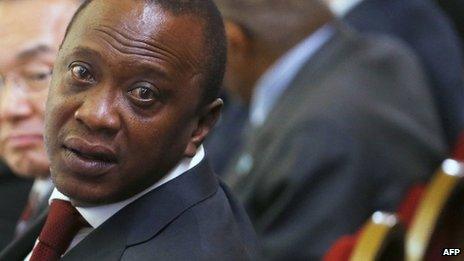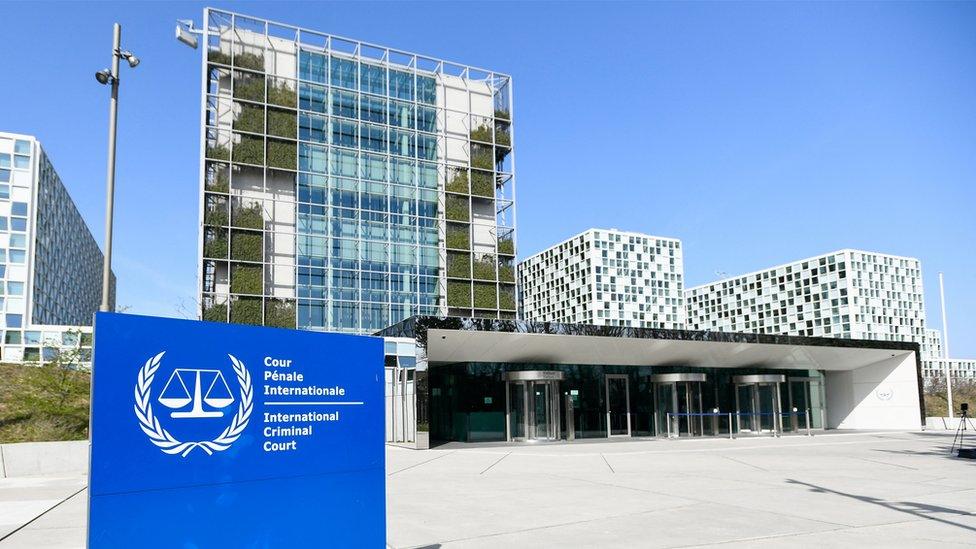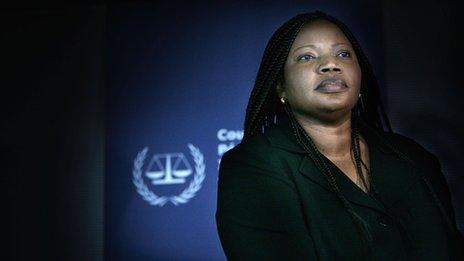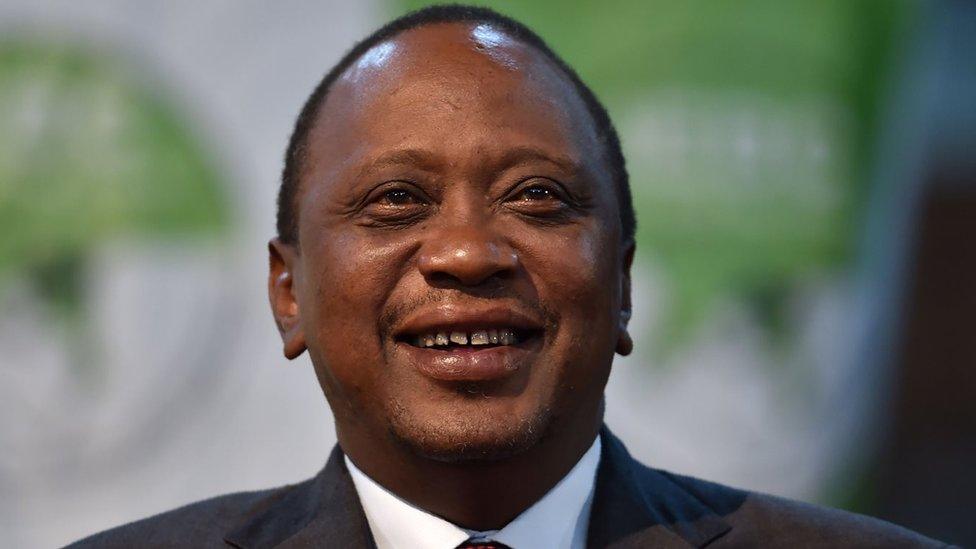African Union accuses ICC of 'hunting' Africans
- Published

Kenya's President Uhuru Kenyatta won elections in March
The African Union (AU) has accused the International Criminal Court (ICC) of "hunting" Africans because of their race.
It was opposed to the ICC trying Kenya's President Uhuru Kenyatta on charges of crimes against humanity, said Ethiopia's Prime Minister Hailemariam Desalegn.
The AU would raise its concerns with the UN, he added.
Mr Kenyatta, who was elected in March, is due to be tried in July.
He denies the charges, which arise from accusations that he fuelled violence after disputed elections in 2007.
'Chasing Kenyatta'
Analysts say the charges bolstered his campaign in this year's poll, as many voters saw the trial as interference in Kenya's domestic affairs.
He beat then-Prime Minister Raila Odinga by 50.07% to 43.28%, giving him a narrow victory in the first round.
Speaking at the end of an AU summit in Ethiopia's capital, Addis Ababa, Mr Hailemariam said the cases of Mr Kenyatta and his deputy William Ruto should be referred to the Kenyan courts.
African leaders were concerned that out of those indicted by the ICC, "99% are Africans", Mr Hailemariam added.
"This shows something is flawed within the system of the ICC and we object to that," he said.
The ICC had been formed more than a decade ago to end the culture of impunity, but "now the process has degenerated into some kind of race hunting", Mr Hailemariam said.
It was "chasing" Mr Kenyatta and his deputy William Ruto, despite the fact that the rival Kalenjin and Kikuyu ethnic groups, who had fought after the 2007 election, had come together to vote for them in the March poll, he added.
"The AU is mandated by the assembly [of the AU] to take care of this issue, to present to the UN the core of this matter," Mr Hailemariam said.
Mr Kenyatta and Mr Ruto were on opposite sides in the 2007 election, after which some 1,000 people were killed and 600,000 people fled their homes.
The trial of Mr Ruto, who faces similar charges as Mr Kenyatta, was due to begin this month but it has been postponed. A new date is yet to be set.
'Witness concerns'
The ICC insists that it acts impartially, and says it intends to press ahead with the case against Mr Kenyatta and Mr Ruto.
Kenyan lawyer Wilfred Nderitu, who represents about 150 victims of the violence, told BBC Focus on Africa he was concerned about the safety of witnesses if Mr Kenyatta and Mr Ruto were tried in local courts.
He also doubted whether Kenya's judiciary was capable of dealing with such complex cases, he said.
"A lot of judges don't have an international criminal justice background. Therefore, the technical expertise will be lacking," Mr Nderitu told BBC Focus on Africa.
Sudan's President Omar al-Bashir attended the summit, in defiance of an ICC warrant for his arrest.
It was unreasonable for the UN Security Council to refer Mr Bashir to the ICC when three of its five permanent members - the United States, Russia and China - had either not signed up to or not ratified the Rome Statute which established the ICC, said AU Peace and Security Council head Ramtane Lamamra, Reuters news agency reports.
"How could you refer the cases of others while you don't feel compelled to abide by the same rule?" he is quoted as saying.
The ICC has charged Mr Bashir with genocide over the conflict in Darfur.
He denies the charge, and accuses the ICC of being a tool of Western powers.
Around 300,000 people are estimated to have died in Darfur since 2003, according to the UN.
Earlier this month, Kenya's government wrote to the UN Security Council, asking for Mr Kenyatta's and Mr Ruto's trials be halted.
The prosecution was "neither impartial nor independent", said the letter, signed by Kenya's UN Ambassador Macharia Kamau.
Mr Kenyatta and Mr Ruto were the "glue" that held the country together during the March poll, the letter added.
The UN Security Council is able to defer ICC cases for up to 12 months.
The deferral can be renewed indefinitely, but the Security Council cannot order the court to drop a case.
- Published7 February

- Published12 December 2011

- Published27 November 2017
